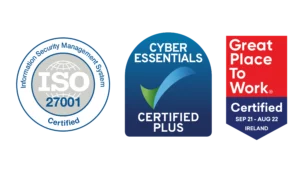The nature of law has long been a topic of debate. The question of whether drafting is an art or a science has come into sharper focus as technology and automation continue to develop.
Moving state legislatures away from paper processing to modern solutions that improve outcomes for staff, lawmakers, and constituents is a critical yet delicate process. As such, digital transformation of the lawmaking process requires extensive domain expertise and specialized skills.
Legislatures need a partner with a deep understanding of how to manage legislative data and protect the unique traditions of each state while moving forward.
Between lawmaking and engagement
People are at the heart of legislative processes. The law is fluid, sometimes referred to as ‘the sausage machine’ in reference to a quotation often attributed to Otto von Bismarck: “If you like laws and sausages, you should never watch either one being made.”
Against the backdrop of a rapidly developing technological environment, on the one hand, many states must seek viable alternatives to aging technologies such as mainframes and drafting tools that may no longer be supported in a few years’ time. On the other hand, social media as well as advancements in search and AI are changing how we, as citizens, consume information.
States are embracing the opportunities that technology offers to bring the legislature to more people, seeking to drive accessibility and transparency with websites that are ADA compliant, mobile-friendly and easy to navigate. However, at the heart of providing such experiences is effective information management, while adhering to cybersecurity best practices. Legislatures need a partner with a deep understanding of how to manage legislative data and protect the unique traditions of each state while moving forward.
Applying technology to law
Technology is already benefiting legal drafters in making their processes more efficient and accurate. Indeed, exciting innovations are underway that can help automate manual tasks, streamline workflows and make it easier for staff to devote more time to the quality of drafts, bills, amendments, resolutions, reports, minutes, journals and the complete array of legislative documents.
However, the necessarily messy, collaborative process of lawmaking means that the legislative process cannot be boxed into generic IT systems. Each state is different and as such, the solution implemented must reflect and enhance what is there.
Effective modernization strategies
As Propylon CIO Sean McGrath stated in a previous article, it simply isn’t possible to put the laws of the world into an executable digital box. Neither should the solutions for digitally transforming the lawmaking process be forced into generic IT solutions. Flexibility is key to the partnership between legislatures and technology providers, however, more importantly, the partner requires specialized expertise in order to implement a solution that is purpose-built to solve your challenges and future-proof the critical work of your legislature. Talk to one of our legislative experts to discover the possibilities of digital transformation.


